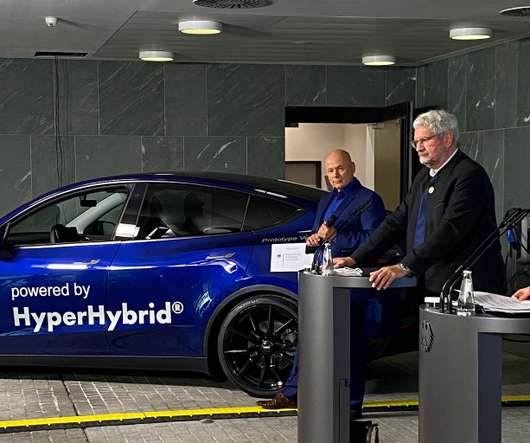CESifo: EVs not the best option for reduction in on-road CO2 in Germany given power mix
Green Car Congress
APRIL 20, 2019
Unfortunately, due to our grid situation, electric cars are still too early for this strategic goal in the sense of German climate protection efforts. The idea of providing the necessary storage of wind and solar energy with batteries is utopian, as the Leopoldina, Acatech and the Union of Academies of Sciences have emphasized.












Let's personalize your content